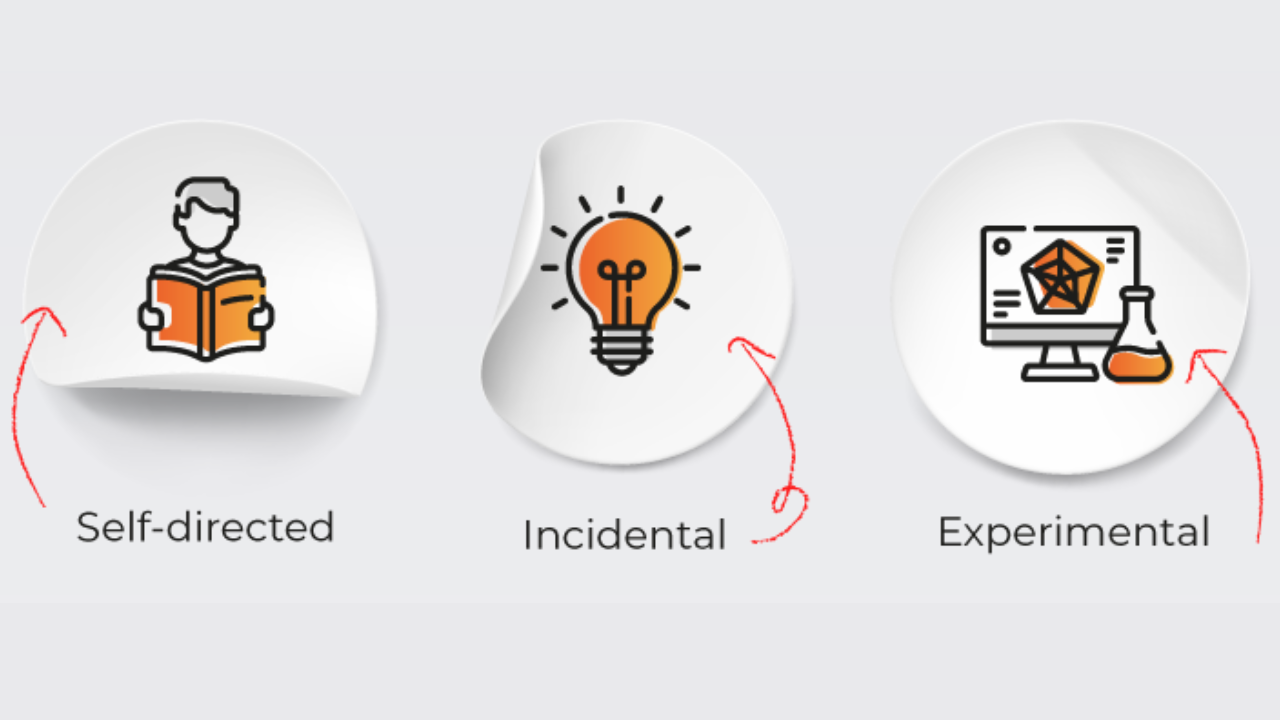It’s even a hackneyed phrase nowadays: human beings are curious by nature. But the fact that it is hackneyed doesn’t make it any less true. People are driven by the desire to learn. In fact, we’re constantly acquiring knowledge. And much of it comes not only from courses, workshops or classes, which are also very important in a person’s education, but also from another essential source of wisdom: informal learning.
It happens, for example, when you’re reading about a subject that appeals to you, if you learn about photography by simply experimenting with your camera when you go for a walk, or when you gain knowledge about gardening by taking care of your plants and finally getting them to survive more than a month in your house.
But it shouldn´t have to happen just in our free time and with our hobbies. Organisations can also encourage informal learning and benefit from the knowledge acquired through informal learning.
What will I read about in this article?
Informal learning occurs in an unstructured way, anywhere, anytime, outside a traditional learning environment. It includes activities such as reading for pleasure, conversations with friends, a picture in a museum, life experiences – anything can be a source of knowledge or reflection at any given moment.
Informal learning is often self-directed and based on the interests and needs of the individual. This means that you are the one who chooses what you want to learn and what forms of learning to employ, without a specific curriculum or set objectives.
It can be as valuable as formal learning, as it enables people to develop skills and knowledge that may not be covered by formal education or training, or related a priori to the tasks they perform in their job. They’re not substitutes, but complement each other.
Most of the training that is promoted in organisations today is formal (and necessary). The courses, workshops, lectures and other resources that companies make available to employees support their professional and personal development. But they leave little room for improvisation and the emergence of unexpected ideas, lessons or knowledge.
Are you familiar with the 70:20:10 learning model? It was a term coined in the early 1980s by Morgan McCall, Robert W. Eichinger and Michael M. Lombardo at the Center for Creative Leadership in Greensboro, North Carolina. This system is based on the theory that 70% of a professional’s learning comes from on-the-job experience and practice, 20% is acquired through communication and feedback with others, and 10% comes from formal courses and training.
Creating a culture of continuous learning within the organisation makes the employee the architect of his or her own learning, as McCall, Eichinger and Lombardo argue. But they’re not alone: for the model to be successful, companies must help make this informal learning happen in the best way possible by providing teams with the right resources, spaces and support.
However, instead of genuinely promoting a learning culture, most employers are obsessed with results and demand ever higher levels of efficiency and performance, which can be the biggest obstacle to curiosity and learning. But Harvard Business Review proposes some strategies to encourage informal learning within the organisation:
- Fostering a learning culture: As we discussed in this article, the ability to adapt and innovate that characterises a learning culture equips organisations to deal with both the unexpected and the developments of a changing business environment. This approach facilitates innovation, continuous improvement and the ability to change. In turn, it enables professionals to gain the knowledge, skills and experience necessary to perform at their best, and to help the organisation grow through their personal and professional development.
- Set aside time for learning: One of the biggest barriers to learning is time, especially when it’s focused on delivering the best levels of performance. We can set aside a specific time each day or week to learn something new, whether it’s reading a book or listening to a podcast. The key is to make learning a priority and find ways to incorporate it into our daily activities.
- Work independently: HBR stresses that it’s crucial that we own our own learning process and manage our professional growth and development.
If you’re waiting to be told what to learn, you’re not being proactive about your learning. Even if you’re not given specific time to achieve it, you should be the one to organise and set aside the time to acquire knowledge.
- Ignoring strengths: While it is practical to choose jobs that suit what we’re good at, we can only develop new strengths by addressing our weaknesses. So, if you want to acquire skills you don’t have or develop new ones, you’ll inevitably have to focus on what you don’t know.
- Learning from others: Some of the most important learning opportunities are organic or spontaneous, and this also happens at work. They involve learning, not from structured courses or training materials, but from other people: for example, peers, colleagues, managers and especially mentors.
Informal learning is an inexhaustible source of knowledge and development, both at the personal and organisational levels. It shouldn’t be underestimated or ignored in favour of formal learning, but encouraged and valued as an essential complement to our ongoing growth. Organisations that promote it not only benefit from more skilled and versatile employees, but also foster an innovative and adaptive work environment. So, whether it’s travelling, cooking, reading or watching tutorials, let’s never stop learning.
Sources:
- https://oxford-review.com/oxford-review-encyclopaedia-terms/informal-learning-definition-application/
- https://www.randstad.cl/mercado-laboral/liderazgo/modelo-702010-el-empleado-como-arquitecto-de-su-propio-aprendizaje-que/
- https://people.acciona.com/es/desarrollo-profesional/profesional-especializado-generalista/
